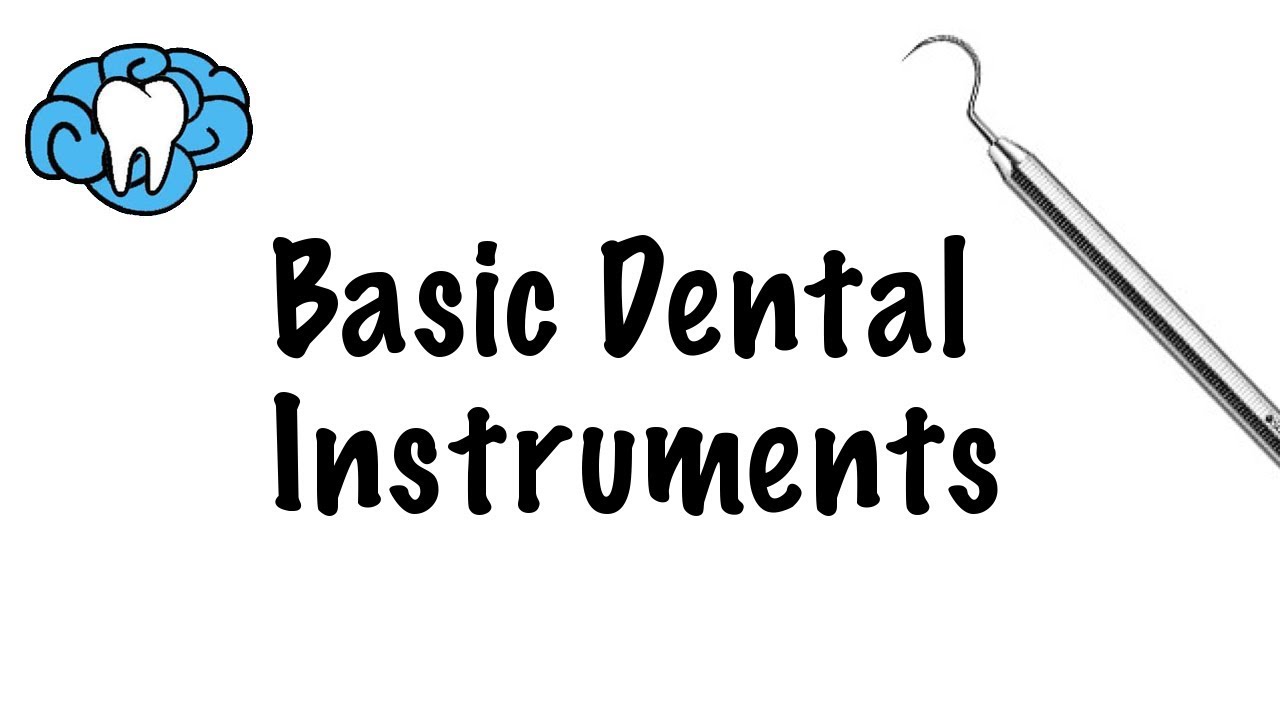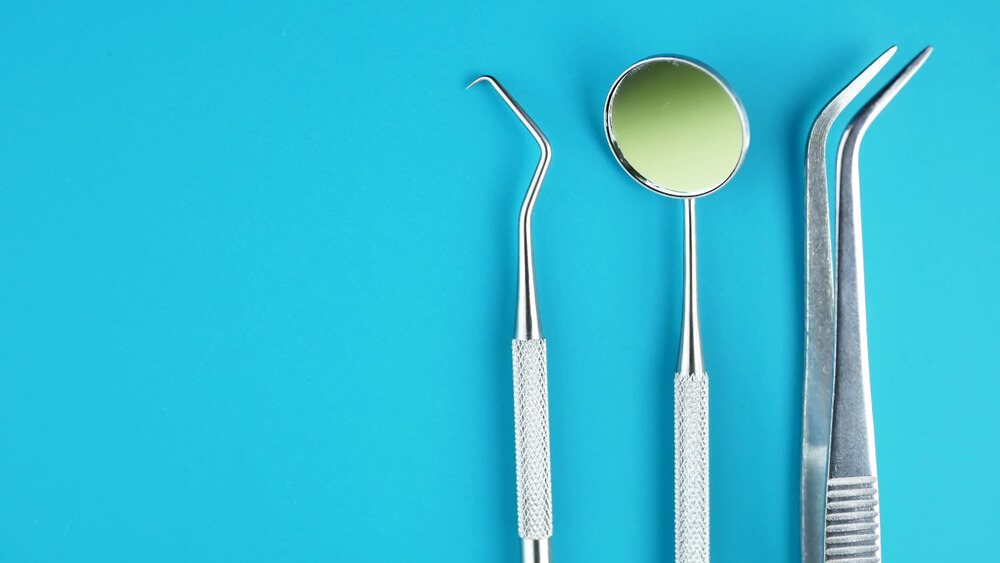Choosing a careerpath in the healthcare industry can be a challenging decision with numerous options available. While many may consider careers in direct patient care, such as nursing or medicine, there is a lesser-known yet equally important field: medical and dental instruments. In this article, we will explore the reasons why is medical/dental instruments a good career path.
What Is The Medical/Dental Instruments Industry?
The medical/dental instruments industry refers to the sector that involves the design, manufacturing, distribution, and maintenance of instruments used in medical and dental settings. It encompasses a wide range of tools, devices, and equipment used by healthcare professionals for diagnostic, therapeutic, and surgical purposes.
In the medical field, instruments can include surgical tools (such as scalpels, forceps, and retractors), imaging devices (such as X-ray machines and ultrasound scanners), monitoring equipment (such as blood pressure monitors and electrocardiographs), and specialized instruments used in specific medical specialties.
In the dental field, instruments can include dental probes, mirrors, excavators, drills, scalers, and various other tools used for oral examinations, treatments, and procedures.
The medical/dental instruments industry plays a crucial role in supporting healthcare professionals by providing them with the tools necessary for accurate diagnosis, effective treatment, and patient care. It involves a diverse range of stakeholders, including instrument manufacturers, suppliers, distributors, regulatory bodies, healthcare facilities, and professionals who work directly with these instruments.
What Companies Are In The Medical/Dental Instruments Field?
The medical/dental instruments field is home to numerous companies that specialize in the design, manufacturing, and distribution of medical and dental instruments. Here are some well-known companies in this industry:
- Johnson & Johnson- A multinational healthcare company that operates various subsidiaries involved in medical and dental instruments, including Ethicon (surgical instruments), DePuy Synthes (orthopedic instruments), and Johnson & Johnson Dental.
- Danaher Corporation- A global conglomerate that owns several companies in the healthcare industry, including Nobel Biocare (dental implants and instruments), KaVo Kerr (dental instruments and imaging), and Beckman Coulter (diagnostic instruments).
- Dentsply Sirona- A leading manufacturer of dental instruments and equipment, offering a wide range of products for both general and specialized dental procedures.
- 3M Health Care- A diversified technology company that produces a variety of medical instruments and supplies, including surgical instruments, dental materials, and infection prevention products.
- Straumann Group- A Swiss dental company specializing in dental implants, prosthetics, and related instruments and services.
- Becton, Dickinson, and Company (BD)- A global medical technology company known for its diverse range of medical instruments and devices, including syringes, needles, and diagnostic instruments.
- Zimmer Biomet- A company that focuses on orthopedic and dental products, providing a range of instruments for joint replacement surgeries, trauma fixation, dental implants, and more.
- Henry Schein, Inc.- A distributor of healthcare products and services, including dental instruments and supplies, serving dental professionals worldwide.
- Stryker Corporation- A leading medical technology company that offers a wide range of surgical instruments and equipment used in various specialties, including orthopedics, neurology, and general surgery.
- Midmark Corporation- A company specializing in medical, dental, and veterinary equipment, including examination tables, dental chairs, and diagnostic instruments.
The 7 Best-Paying Jobs In Medical/Dental Instruments

The 10 HIGHEST PAYING Medical Careers (Besides Doctors!)
The medical/dental instruments field offers various career paths, some of which are known for their high earning potential. Here are seven of the best-paying jobs in this industry:
- Medical/Dental Device Sales Representative- Sales representatives who specialize in medical or dental devices often have the potential for high earnings due to commission-based structures and bonuses tied to sales performance.
- Biomedical Engineer- Biomedical engineers involved in designing, developing, and improving medical and dental instruments can earn high salaries. Their expertise in both engineering and healthcare allows them to contribute to advancements in the field.
- Dental Implant Specialist- Dental implant specialists, such as prosthodontists or oral surgeons, who specialize in dental implant procedures, can earn significant income due to the specialized nature of their work and the high demand for dental implants.
- Medical/Dental Equipment Repair Technician- Technicians who specialize in repairing and maintaining medical or dental equipment can command high salaries due to their specialized knowledge and skills.
- Clinical Research Associate- Clinical research associates involved in medical or dental instrument trials and studies can earn high salaries. Their responsibilities include monitoring the progress of clinical trials, ensuring compliance with regulations, and collecting and analyzing data.
- Product Manager - Product managers in the medical/dental instruments industry oversee the development, marketing, and management of specific instruments or product lines. Their strategic roles often come with competitive salaries.
- Quality Assurance Manager - Quality assurance managers who ensure that medical/dental instruments meet regulatory standards and maintain high quality can earn substantial salaries due to the critical nature of their role in ensuring patient safety.
Why Choose A Career In Medical/Dental Instruments?

Is Medical/Dental Instruments A Good Career Path?
Choosing a career in medical/dental instruments can offer a range of compelling reasons. Here are some key motivations for considering this career path:
- Impact on Healthcare -Working in medical/dental instruments allows you to contribute to the advancement of healthcare. By designing, manufacturing, or maintaining instruments, you directly impact patient care and outcomes, ensuring accuracy, efficiency, and safety in medical and dental procedures.
- Job Stability -The healthcare industry, including the medical/dental instruments field, offers strong job stability. As long as there is a need for healthcare services, there will be a demand for skilled professionals in this industry, providing a sense of security in your career.
- Technological Advancements -The medical/dental instruments field is at the forefront of technological advancements. You will have the opportunity to work with cutting-edge tools, innovative devices, and emerging technologies, keeping you engaged and allowing for continuous learning and growth.
- Variety of Career Paths -The field offers a wide range of career paths and opportunities. Whether you are interested in research and development, manufacturing, sales, or quality assurance, there are diverse roles to suit your interests and skills within the medical/dental instruments industry.
- Job Satisfaction - Working in medical/dental instruments can be highly rewarding and fulfilling. Knowing that your work directly contributes to improving patient care, enhancing diagnostic accuracy, and enabling effective treatments can bring a deep sense of satisfaction and purpose.
- Collaborative Environment -The healthcare industry thrives on collaboration, and the medical/dental instruments field is no exception. You will have the opportunity to work closely with healthcare professionals, engineers, researchers, and other experts, fostering a stimulating and collaborative work environment.
- Competitive Compensation -Careers in medical/dental instruments often come with competitive compensation packages, reflecting the specialized skills and knowledge required in this field. The potential for growth and advancement can lead to attractive financial rewards.
- Continuous Learning -The medical/dental instruments field is ever-evolving, driven by advancements in technology and research. This dynamic nature ensures that your career remains intellectually stimulating, with opportunities for continuous learning, skill development, and professional growth.
What Do People Working In Medical/Dental Instruments Do?
People working in the medical/dental instruments field perform various roles and responsibilities depending on their specific job titles and areas of expertise. Here are some common roles and tasks within this industry:
- Design and Development -Professionals involved in design and development focus on creating new medical/dental instruments or improving existing ones. They collaborate with engineers, researchers, and healthcare professionals to design prototypes, conduct testing, and refine instrument designs to meet specific requirements and industry standards.
- Manufacturing and Production -Individuals in manufacturing and production oversee the mass production of medical/dental instruments. They ensure quality control, adherence to regulatory standards, and efficient production processes. This can involve operating machinery, managing inventory, and collaborating with supply chain and logistics teams.
- Quality Assurance and Regulatory Compliance -Quality assurance professionals ensure that medical/dental instruments meet stringent quality standards and regulatory requirements. They develop and implement quality control procedures, conduct inspections and audits, and monitor manufacturing processes to ensure the instruments are safe and effective.
- Sales and Marketing -Sales and marketing professionals play a crucial role in promoting and selling medical/dental instruments. They work closely with healthcare professionals, hospitals, dental clinics, and distributors to demonstrate the features and benefits of the instruments, build relationships, and generate sales.
- Research and Development -Researchers in the medical/dental instruments field focus on exploring new technologies, materials, and methodologies to advance instrument design and functionality. They conduct studies, analyze data, and collaborate with interdisciplinary teams to drive innovation and improve patient care outcomes.
- Installation and Maintenance -Installation and maintenance technicians are responsible for installing and setting up medical/dental instruments at healthcare facilities. They also perform routine maintenance, calibration, and repairs to ensure the instruments function optimally and remain in compliance with safety standards.
- Training and Support -Professionals in training and support roles provide education and training to healthcare professionals on how touse medical/dental instruments correctly and safely. They may conduct workshops, develop training materials, and provide technical support to ensure effective and efficient instrument utilization.
How Many Jobs Are Available In Medical/Dental Instruments?
The medical/dental instruments field offers a significant number of job opportunities across various sectors. While it is challenging to provide an exact count, the industry has a considerable workforce and continues to grow due to technological advancements and the increasing demand for healthcare services. Here are a few factors that contribute to the availability of jobs in this field:
- Industry Growth -The healthcare industry, including the medical/dental instruments sector, is experiencing continuous growth. Advancements in medical technology, an aging population, and the focus on preventive care contribute to the increasing demand for medical and dental instruments. As a result, there is a steady supply of job opportunities in this field.
- Diverse Roles and Specializations -The medical/dental instruments field encompasses a wide range of roles and specializations. From design and development to manufacturing, sales, quality assurance, research, and technical support, there are numerous career paths to pursue within this industry. This diversity provides individuals with various job opportunities and options for specialization.
- Global Reach -The medical/dental instruments industry has a global reach, as healthcare is a universal need. Companies involved in the design, manufacturing, and distribution of medical/dental instruments operate on a global scale, creating job opportunities across different regions and countries.
- Emerging Technologies -Technological advancements, such as artificial intelligence, robotics, digital imaging, and telemedicine, are driving innovation in medical/dental instruments. These advancements lead to the development of new instruments and the need for professionals skilled in working with advanced technologies, creating additional job opportunities.
- Supporting Roles -Beyond the core positions directly involved in instrument design and manufacturing, there are supporting roles that contribute to the functioning of the medical/dental instruments industry. These roles include supply chain management, logistics, quality control, regulatory compliance, customer support, and technical services, which collectively offer a substantial number of job opportunities.
Education And Certification Requirements For A Career In Medical/Dental Instruments
A career in medical/dental instruments typically requires a combination of education and relevant certifications. Here are some common educational paths and certifications that can help individuals pursue a career in this field:
Education
- Bachelor's Degree -Many professionals in the medical/dental instruments field hold a bachelor's degree in fields such as biomedical engineering, mechanical engineering, electrical engineering, or a related discipline. These programs provide a solid foundation in engineering principles and can include coursework in medical device design, biomaterials, instrumentation, and anatomy.
- Associate's Degree or Technical Diploma -Some positions in medical/dental instrument manufacturing or repair may be accessible with an associate's degree or technical diploma in fields such as biomedical equipment technology or biomedical engineering technology. These programs focus on practical skills and provide hands-on training.
- Advanced Degrees -Pursuing a master's or doctoral degree in a relevant field can provide individuals with a competitive edge and open up opportunities for higher-level positions, research, or specialized roles in areas such as product development, clinical research, or academia.
Certifications
- Certified Biomedical Equipment Technician (CBET) -Offered by the Association for the Advancement of Medical Instrumentation (AAMI), the CBET certification is widely recognized in the medical equipment repair and maintenance field. It demonstrates proficiency in troubleshooting, repairing, and maintaining medical equipment and instruments.
- Certified Surgical Technologist (CST) -This certification, offered by the National Board of Surgical Technology and Surgical Assisting (NBSTSA), is relevant for professionals involved in surgical instrument preparation and assisting during surgical procedures.
- Certified Dental Technician (CDT) -The National Board for Certification in Dental Laboratory Technology (NBC) offers CDT certification for dental technicians. This certification validates expertise in fabricating dental prostheses and working with dental instruments.
- Quality Management Certifications -Certifications such as Certified Quality Engineer (CQE) from the American Society for Quality (ASQ) can be beneficial for professionals involved in quality assurance and compliance roles within the medical/dental instruments industry.
- Vendor-Specific Certifications -Many medical/dental instrument manufacturers offer vendor-specific certifications for professionals working with their products. These certifications validate knowledge and proficiency in operating, maintaining, or troubleshooting specific instruments or systems.
What Types Of Dental Instruments Are?

Basic Dental Instruments
Dental instruments encompass a wide range of tools and equipment used by dental professionals to perform various dental procedures. Here are some common types of dental instruments:
Examination Instruments
- Mouth mirror- Used to view and reflect light into the patient's oral cavity for examination.
- Explorer- A pointed instrument used to detect dental caries (cavities) and abnormalities on tooth surfaces.
Diagnostic Instruments
- Periodontal probe- Used to measure the depth of gum pockets around teeth, aiding in the assessment of periodontal health.
- Dental radiography equipment- Includes X-ray machines, sensors, and film holders used to capture dental images for diagnostic purposes.
Operative Instruments
- Handpiece- High-speed or low-speed dental drills used for various procedures, including cavity preparation and tooth shaping.
- Excavator- Used to remove decayed dentin and prepare the tooth surface for restoration.
- Composite placement instruments- Specifically designed for placing and shaping tooth-colored composite resin fillings.
Surgical Instruments
- Extraction forceps- Used for tooth extraction procedures.
- Scalpel- A sharp surgical blade used for incisions during surgical procedures.
- Surgical curette- Used for the removal of diseased tissue or debris from the surgical site.
Periodontal Instruments
- Scaler- Used to remove calculus (tartar) deposits from tooth surfaces and below the gum line.
- Periodontal curette- Specifically designed for cleaning and smoothing the root surfaces after scaling.
Endodontic Instruments
- Root canal files- Used for cleaning and shaping the root canal during endodontic procedures.
- Gutta-percha points- Used for filling and sealing the cleaned root canal.
Prosthodontic Instruments
- Impression trays- Used to take dental impressions for the fabrication of crowns, bridges, and dentures.
- Articulator- A device used to simulate jaw movements and position dental models during the fabrication of dental prostheses.
Orthodontic Instruments
- Brackets- Small attachments bonded to teeth to hold orthodontic wires in place.
- Orthodontic pliers- Used for bending, adjusting, and placing orthodontic wires and components.
People Also Ask
What Are Medical/Dental Instruments Used For?
Medical/dental instruments are specialized tools used by healthcare professionals to diagnose, treat, and monitor patients. These instruments vary widely depending on the specific medical or dental procedure and can include surgical instruments, dental probes, imaging devices, dental drills, syringes, and more.
How Are Medical/Dental Instruments Sterilized?
Medical/dental instruments must be properly sterilized to ensure patient safety and prevent the spread of infections. Sterilization methods include autoclaving (using high-pressure steam), chemical sterilization (using disinfectants or sterilizing solutions), and dry heat sterilization.
What Are The Future Trends In Medical/Dental Instrument Development?
The field of medical/dental instruments is constantly evolving, driven by advancements in technology and the demand for improved patient care. Some future trends include the development of minimally invasive surgical instruments, the integration of artificial intelligence and robotics in surgical procedures, the advancement of dental imaging technology for early disease detection, and the use of smart devices and wearable instruments for remote patient monitoring.
Conclusion
A career in medical/dental instruments offers an array of advantages and opportunities. The growing demand, job stability, technological advancements, varied career options, and job satisfaction make this field an attractive choice for individuals interested in healthcare and technology. With a solid educational foundation, specialized skills, and a passion for improving patient care, pursuing a career in medical/dental instruments can be a rewarding path, allowing you to contribute to the advancement of healthcare and make a positive impact on people's lives.

